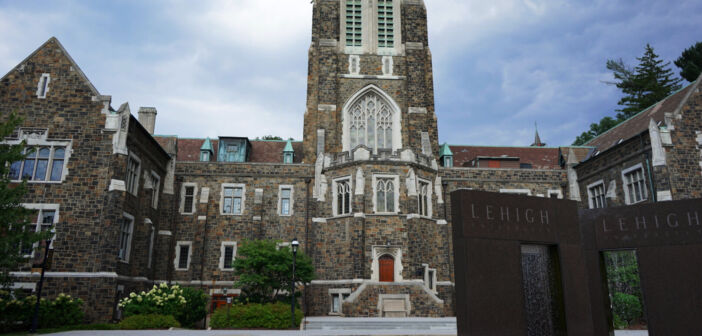Lehigh is entering its second year under the National Science Foundation’s Aspire Alliance IChange Network.
This three-year project is part of the NSF’s goal to revolutionize STEM, increasing diversity, equity and inclusion at all levels, said Jessica Bennett, project manager for IChange.
The advances made through IChange during this time are all part of Lehigh’s Diversity, Equity and Inclusion goal.
“What this (the plan) does is informs the strategic priorities that we’ll be investing in engaging in for all organizations,” said Donald Outing, vice president for Equity and Community.
Outing said a focus of the DEI plan includes hiring faculty of color for the College of Engineering.
Diversity among Lehigh faculty has been increasing over the past nine years. The largest demographic remains white followed by Asian and unknown.
Bennett said the Aspire Alliance has three major initiatives focusing on change at different levels and sites in higher education. Lehigh is part of the Institutional Change initiative, or IChange, which focuses on developing more inclusive and diverse STEM faculty at four-year universities.
“We focus on faculty because faculty are the stewards of their institutions. (They) have important roles in educating students and supporting communities and generate the bulk of the knowledge we have about the world around us,” Bennett said.
Bennett said Lehigh is part of the third cohort to join IChange. A total of 50 institutions have applied and joined the network since its creation.
This university endeavor is being led by Jackie Krasas, deputy provost for faculty affairs, Henry Odi, deputy vice president for equity and community and associate provost for academic diversity, Professor Kristen Jellison of the civil and environmental engineering department and Lehigh ADVANCE Project Manager Marci Levine.
Levine said the 2020-2021 academic year was spent completing a self-assessment phase that examined multiple years of practices, policies and demographics in place at Lehigh. Using IChange's common tools, the team reflected on this information to identify Lehigh’s strengths, weaknesses and new opportunities, Levine said.
Moving into the 2021-2022 academic year, various stakeholder conversations are happening to determine what project priorities and strategy designs should be implemented into an action plan.
The leadership team behind this is being determined based on what projects are chosen to be prioritized, Levine said.
Levine said one action item already underway is IChange Network training for Lehigh leaders to target faculty retention and capacity building.
Bennett said IChange assists participating universities in meeting three main goals: preparing STEM faculty to be more inclusive and effective in their undergraduate endeavors, diversifying faculty by transforming institutional practices, policies and resources, and fostering institutional cultures that recognize and value inclusivity and diversity in STEM work and beyond.
The first cohort of institutions have begun implementing their action plans based on these goals.
The results have ranged from plans to improve training for faculty search committees, creating community support mechanisms for faculty from underrepresented groups, providing support for senior faculty to mentor junior faculty and revising tenure and promotion policies to increase recognition of inclusion and diversity in faculty work, Bennett said.
Bennett said this is just a small sample of strategies cohorts have identified as steps to take.
“Lehigh is not only doing this work across STEM departments; all units are engaged in the process to support our campus-wide goals of hiring, retaining and supporting a diverse faculty and supporting all faculty to be inclusive and effective in their teaching, research and advising roles for all students,” Levine said.
Levine said Lehigh is not starting at the beginning. Rather, it has the necessary communities of strong partnerships and practices to see results.
“At the end of the day, we want the institutions in our network to look, act and feel different, particularly for the underrepresented group of faculty on their campuses,” Bennet said.






Comment policy
Comments posted to The Brown and White website are reviewed by a moderator before being approved. Incendiary speech or harassing language, including comments targeted at individuals, may be deemed unacceptable and not published. Spam and other soliciting will also be declined.
The Brown and White also reserves the right to not publish entirely anonymous comments.